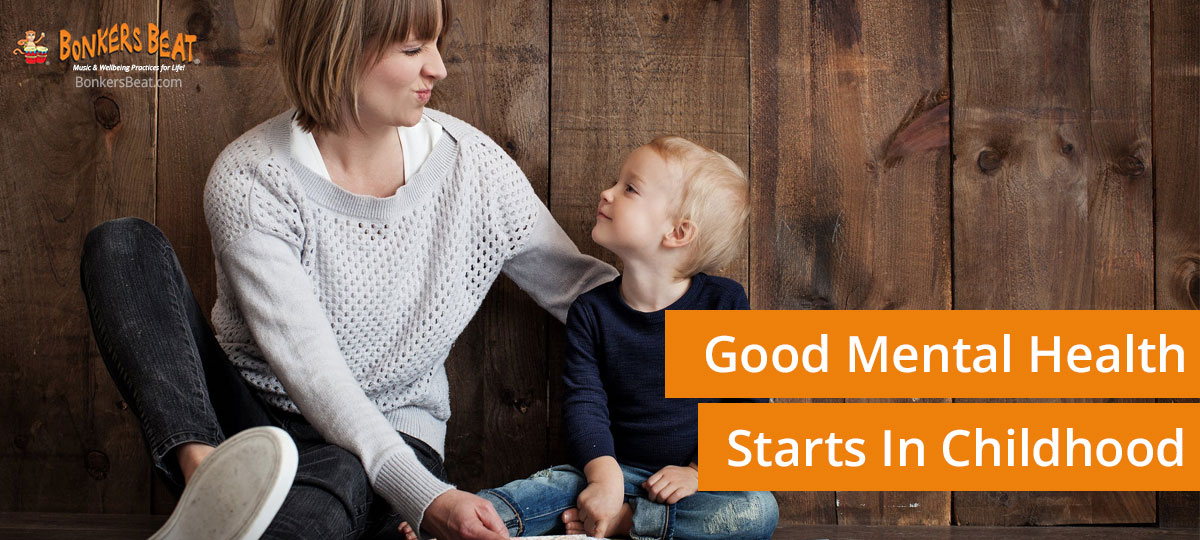Around fifty percent of all mental health conditions experienced in adulthood begin prior to the age of 14 (Beyond Blue). And with one in five Australians affected by mental illness, including one in seven children, the earlier we can support children in developing good mental health, the better.
World Mental Health Day takes place on 10 October. It presents an opportunity to reflect on what we can do as early childhood educators to better support children’s mental health and the mental health of educators. We can play a vital role in positive behaviours to enhance mental health for young children. Caring for our fellow educators should be ingrained in our centres as we ensure adequate support is available for all in need. In addition, the mental health and wellbeing of our educators can impact their ability to deliver the best outcomes for children in their care.
Mental health is a subject that Bonkers Beat is passionate about, as many of you who run our programs or have attended our sessions would be aware. We believe enhancing wellbeing is the key to giving children the best chance in life and wellbeing is essential for us right through adulthood also. In fact, enhancing wellbeing is at the heart of everything we do at Bonkers Beat.
Enhancing protective factors for children’s mental health
While mental health issues are not always avoidable or preventable, there are things we can do to offer the best chance of developing good mental health.
For children, in particular, we often talk about building resilience. This is giving children the ability to bounce back from setbacks. It enables us to fail but not let that sense of failure overcome. Rather, resilience allows us to use an instance of failing as a teacher so we can continue to do better and take a new or improved approach at a variety of dealings in life.
We often write articles for this blog around building resilience, including the power of positive thinking and the benefits of empowering children. They have some really great suggestions to build resilience and improve the mental health and wellbeing of children in your care. While we write with the intention of using these resources to help the little people in our care, it is all applicable for educators and individuals too!
Beyond Blue has a fantastic guide on building resilience from birth to age 12 which you can find here. Resilient Youth has many free resources on this topic also.
Resilience is just one preventative measure for mental health, however, there are many practical strategies that can be implemented in your service or at home.
Wellbeing Strategies in Practice
Over the years, we have developed a number of wellbeing strategies which are used at Bonkers Beat Music Kinder and other services that run our programs. These include a wide range of daily wellness experiences that enhance children’s and educators’ mental health, with yoga and meditation being just a small part of the kinder daily routines. Get some inspiration and ideas here!
Breaking down the mental health stigma
The stigma around mental health is a major issue, with many people avoiding seeking help because of it. By creating a comfortable space and open line of communication, we can make a huge difference for those affected by mental illness.
With World Mental Health Day approaching, use this date as a reminder to talk about mental health openly within your centre. Take the opportunity to assess how you can improve the way you approach mental health and more importantly take action.

